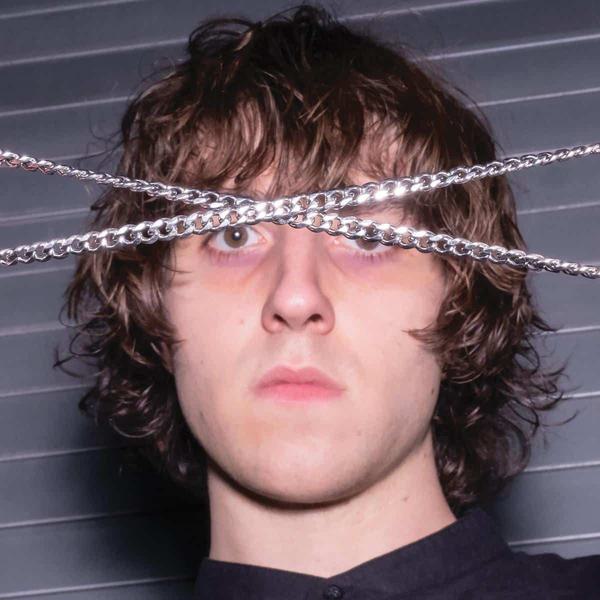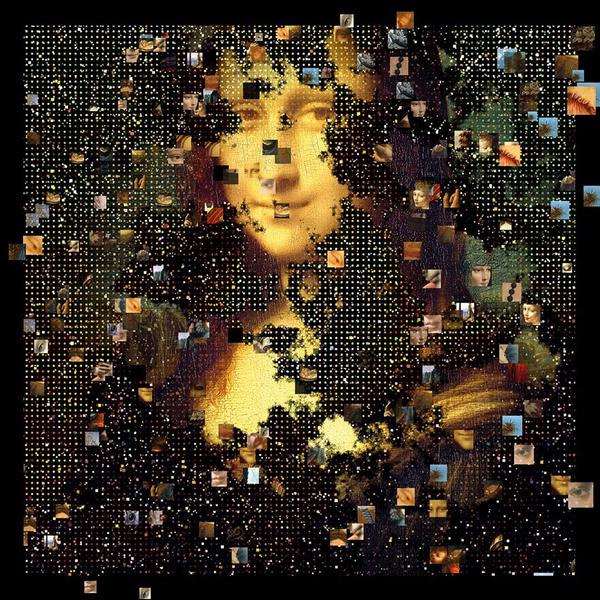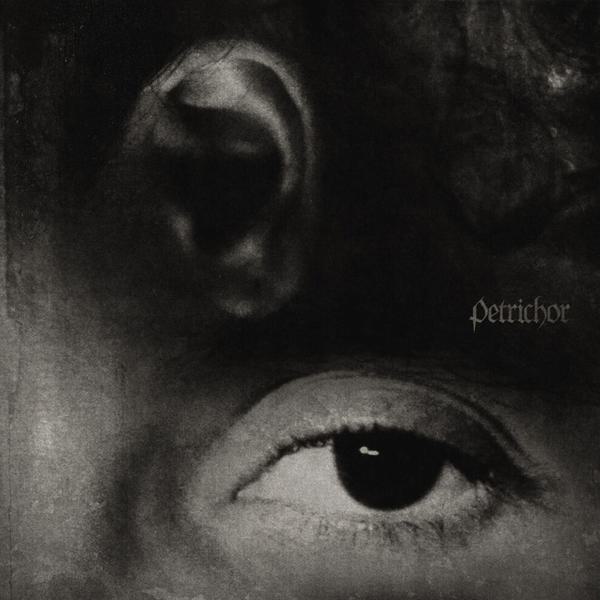Named after a study of plants, Botany is the endearing electronica project of Texan producer Spencer Stephenson. He first came onto our radar when he released his quietly applauded debut EP Feeling Today back in 2010 through Western Vinyl and since then we have been waiting with baited breath for the first full length offering from the producer.
Citing artists such as Roger Dean and Zdzislaw Beksinski as his inspiration, Stephenson’s debut full-length Lava Diviner (Truestory) takes the listener on in intense journey of sound created by a wonderfully constructed jumble of equipment – ranging from samples, to ageing desktop computers, to violins. In the wake of the record’s release, we caught up with the electronic craftsman for an in-depth discussion of the record.
You describe the record as a story – was that an intention from the start or did it just come naturally with the different moods and feelings that you experienced in the studio?
Writing an instrumental album with a narrative sounds kind of stupid – since there are no lyrics, there are no words to tell a story with in the traditional sense. Making music is my biggest creative avenue, a lot of my mental energy and time goes more toward that mode of expression than even verbal communication most of the time, so it made sense to me synaesthetically. When I had begun making material for what would become Lava Diviner, I was reading a lot of golden age science fiction – Arthur Clarke for example – and I was starting to scratch the surface of writing a story of my own, but naturally that creative energy just rolled off of writing and funnelled into music. More than anything, I just tried to pay attention to immersion, pace, and emotional tone in a really dynamic way, as a storyteller might, and create tracks from that mental space.
Do you think Lava Diviner is the natural progression from your EP Feeling Today or have you taken a different approach to the record?
Well, I think given the fact that music is something I just do and it follows the natural curve of my existence, it is a natural progression. But in a musical sense, I think it’s a huge shift into something that feels so much more legitimate and fully-formed that I don’t even compare the two. When I put together Feeling Today I was 21 and purely excited at the prospect of putting something out into the world. I feel the same excitement about this album, but comparatively I was grasping in the dark with that shit, and I ended up just releasing the first things I got a hold of. I pulled together a few tracks that I thought sounded good enough to release, but I’m kind of embarrassed by most of that EP looking back – especially the more indie-pop elements. I don’t know what the fuck I was thinking. That doesn’t even feel like part of my lexicon. It was mostly aimless practice, with little or no confidence in my own voice as a musician. This album was a fairly intensive, deliberate thing that I think sounds a lot closer to the inside of my head than Feeling Today did.
Each track seems to be layered with interweaving complex sounds, that feel both electronic and natural at the same time. What do you feel influenced the creation of this simultaneous effect?
I really think that’s just a huge part of who I am. I tend to gravitate towards warmer sounds when I’m selecting samples or mixing a track. There’s something about the glossiness of the post-CD era that’s bland to me. I’m not particularly interested in hearing ultra-clean recordings where the philosophy is “let’s make it sound as true-to-life as possible”. ‘True-to-life’ and ‘clear’ aren’t necessarily the same thing. I don’t like the idea of making the medium transparent. Recording is a totally malleable thing, the medium itself can become an instrument depending on whose hands it’s in. It’s boring not to poke at it and fuck with it.
Inspiration wise, what was playing in the studio when you were creating the record?
It’s hard to say because of how long the process was. I have my standbys which are probably fairly commonplace, like Dilla and Madlib. I always use them as references for how drums should sit in a mix and how they should sound overall, but it’s hard to say what was pouring in that went above and beyond the artists whose music is already ingrained in me. When I was making this record, I had kind of put a tourniquet on the constant influx of new records I had been caught up in before. I think for awhile there was a widespread competitive ethic to new music, everyone was trying to be the guy to say “have you heard of this?” and I was pretty disillusioned with that. I sort of shuddered at the thought that, at its best, my own music might be something a person held over everyone’s head to serve their own ego and superiority in some weird way. So I just turned to my existing record collection and really tried to fall back in love with music I already knew well. I think the only novel (to me) thing I really absorbed into my vocabulary at that time was Iasos’ Inter-Dimensional Music.
Are there any people you particularly respect with regards to the way in which they produce and sample other tracks?
Other than the two I already mentioned, who I think have an influence on so many people already, I’m a fan of a lot of producers across the board. I think I have my own ear for samples – that’s an art form that I really hold dearly and I feel like my approach comes from a pretty pure place. I can’t think of any one producer and say “that’s where I learned how to sample records”, but Four Tet and Caribou did open up a new world for me when I was pretty young. Before that I was only sampling jazz and soul and stuff that’s always sampled in hip-hop, but those artists opened me up to the idea that I can sample anything. Particularly Caribou, sampling a lot of baroque pop and psych on Up In Flames – that album sent me on a psych-collecting rampage that has forever changed my taste in music.
{pagebreak}

How was it collaborating with RYAT and how did it come about?
She first reached out to me back in 2010 to do a remix for her, and we always kept this idea of collaboration open. I met her in person for the first time when she came to Austin a couple years back, and that’s when she dropped the news to me that she was doing something with Brainfeeder. Ironically I flew up to Philadelphia a couple of days after that and met her old drummer randomly. A weird cosmic coincidence kind of thing. But she had worked on a few things that she never sent over, and I think I sent her a track and just encouraged her to do it on her own time. I moved to a farm for a few months and when I got back, I had the full vocals for “Simple Creatures” in my email inbox.
Obviously she has worked with Flying Lotus, is that someone whose work you appreciate?
I’d like to find somebody who would say no to that question. I imagine it was the same way with Aphex Twin in his heyday – there probably wasn’t a single artist working within a certain range of the genre who hadn’t been moved by his work in some way or another. But I’m at a point with my confidence in my own creative voice that when I hear something like Flying Lotus I can say “That’s great, but I’d like to do something else with it.” I don’t think I’ll ever have the kind of reach he does, but I’m not even gonna try to compete or mirror it. I’m most satisfied with my music when it sounds like my imagination, not someone else’s.
How would you describe your music to someone that’s never heard anything like it before?
That’s a hard one for me to answer. I’m a terrible salesman of my own music. I usually gauge it by how I describe it to older people who don’t really have a concept of this kind of music, which is some mumbly generality like “ambient music mixed with hip-hop beats”. But that sounds stupid. I really don’t know. It’s post-modern psych rock in an age when the computer has supplanted the guitar and hip-hop is the dominant American musical genre. Or some shit.
Normally when it comes to a record, I don’t really connect with track titles but in your case they struck me. How did you go about naming each track? To me it seems like you envisaged each track as a short story and that’s reflected in the titles.
Yeah, I’m glad you take that view, I empathise. I just played off of the working titles of the songs and tried to create words or phrases that carried some kind of inherent mystery to fire up the listener’s imagination to some extent. Some of them have meaning, some contribute to the narrative, others are totally arbitrary. “Per-Eon” is my favourite song title, and one of my favourite tracks on the album. That name, to me, conjures a lot of vastness and grandeur, there’s a lot of possible meaning packed into two-syllables. The names are meant to be impressionistic, as is the music to a large degree.
Similarly, how did you name the record?
Well I mentioned that I started the album around a narrative framework, and the title came from that. The world that I wanted to try to create sonically centered around a sect that believes that the Supervolcano under North America would erupt in their lifetime, in the same way that real cults center around comet flybys, or the second coming of Christ. So essentially the people in the story function like water-witches, but for molten rock instead of water. The whole idea came out of questioning the seemingly inherent apocalypse-fantasy that a lot of cultures have, and wondering why human beings tend to be so hungry for that kind of destruction in the first place. I also wanted to evoke a grand, ancient, geologically reverential vibe within the music itself.
How did you end up working with Father John Misty?
I met him a few times because of him being on Western Vinyl with the J. Tillman stuff and playing shows with him. I went way out of my league and just asked if he’d contribute to a track of mine in 2010 back in the Fleet Foxes days and he agreed. Casey Wescott also contributed some vibes and piano, a lot of which isn’t in the current version. I made the backing beat on a Saturday, sent it to Tillman on a Tuesday and he had it back to me that Wednesday with full lyrical vocals, drums, all these layers he added during a day in the studio, it was really impressive. Tillman is an extremely talented musician. So that summer I pulled up to my job at a Fireworks stand blasting this track for my friends that I’d made with members of one of our favourite bands. It was kind of a surreal, ridiculous moment. I was even more of a nobody back then than I am now. It was really exciting for me. It wasn’t appropriate for the full-length or the material that I’m working on for an EP now so I remixed it and put it out there to help shine a light on my work a little bit.
How long did the record take to make? How does it feel on the week of its release?
I went through my fair share of bullshit while trying to bring this thing to life. I was broke, jobless, unable to pay rent and letting my personal relationships suffer, drinking a lot, just breaking my back over this album trying to complete it. The Truestory part of the title kind of sarcastically plays off of the idea the album follows a narrative, but it also refers to the fact that no matter what amount of fictional imagery I conceived to help the album take shape, the whole thing is just a personal reflection in the same way that every character in a dream is really oneself. I can remember where I was when I started and finished each track, which was sometimes separated by months, but the whole thing feels like a scrapbook now a little bit. I’m less and less concerned with who likes the album and who doesn’t. I made it for me and I made from a deep, sincere place. No power-wielding journalist can put a value on it with a review, and I think it’s bullshit to try and quantify someone’s personal feelings in that way for obvious reasons. My only hope is that the album becomes as personal to someone else as it has been to me, as close as it can anyway. I’m super proud of it. I think it’s great.
Lava Diviner (Truestory) is out now on Western Vinyl.
- Brat is the music critics album of the year for 2024
- Lady Gaga says Bruno Mars collaboration was the "missing piece" of LG7
- UCHE YARA releases final track of the year, "as I left the room"
- Alabama Shakes play their first show in over seven years
- Paul McCartney joined by Ringo Starr and Ronnie Wood for closing night of Got Back tour
- Watch Clarissa Connelly cover "Moonlight Shadow" in session at End of the Road Festival
- FINNEAS, Barry Can't Swim, Foster The People and more join NOS Alive 2025
Get the Best Fit take on the week in music direct to your inbox every Friday

Cameron Winter
Heavy Metal

Sasha
Da Vinci Genius






